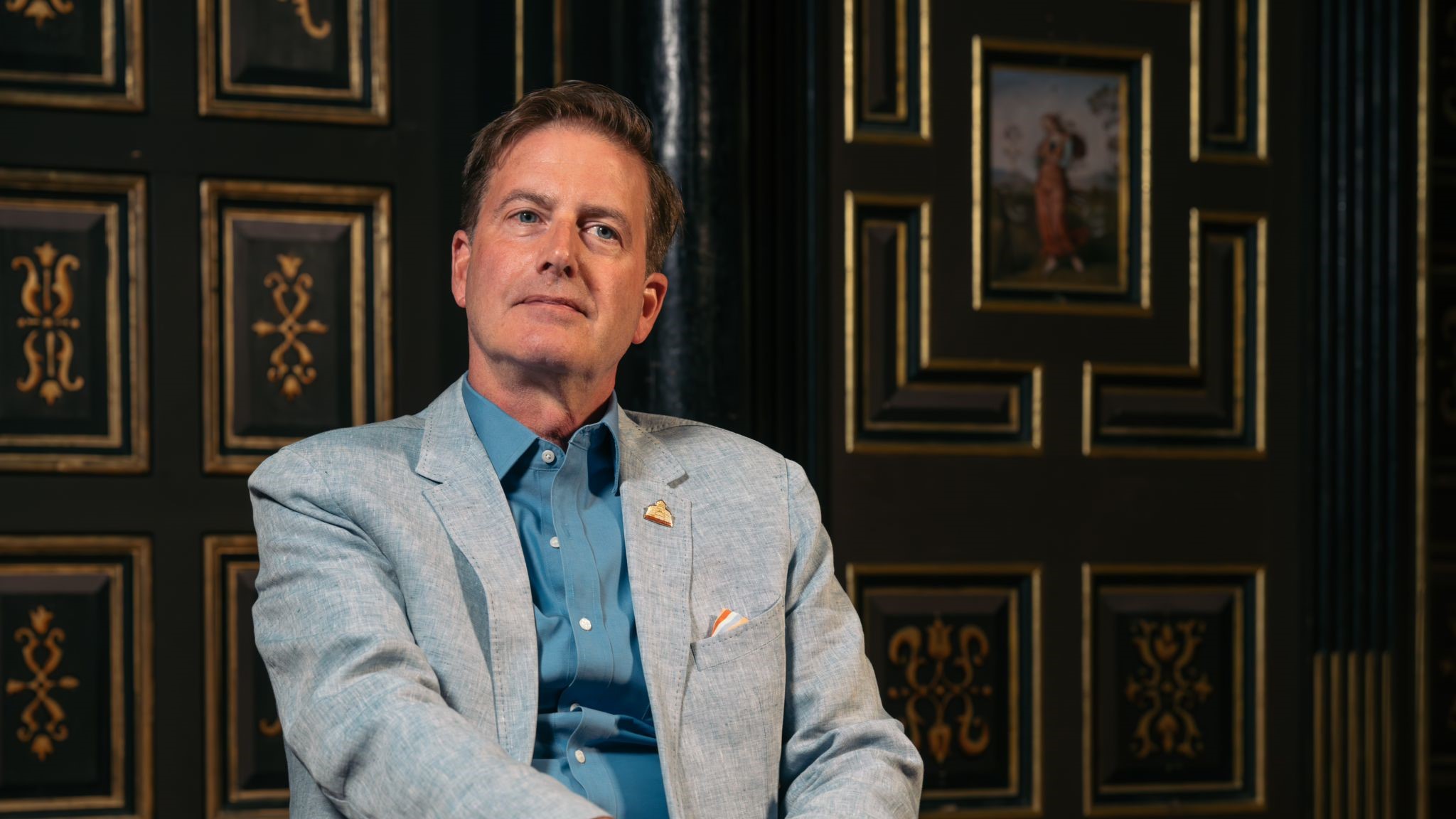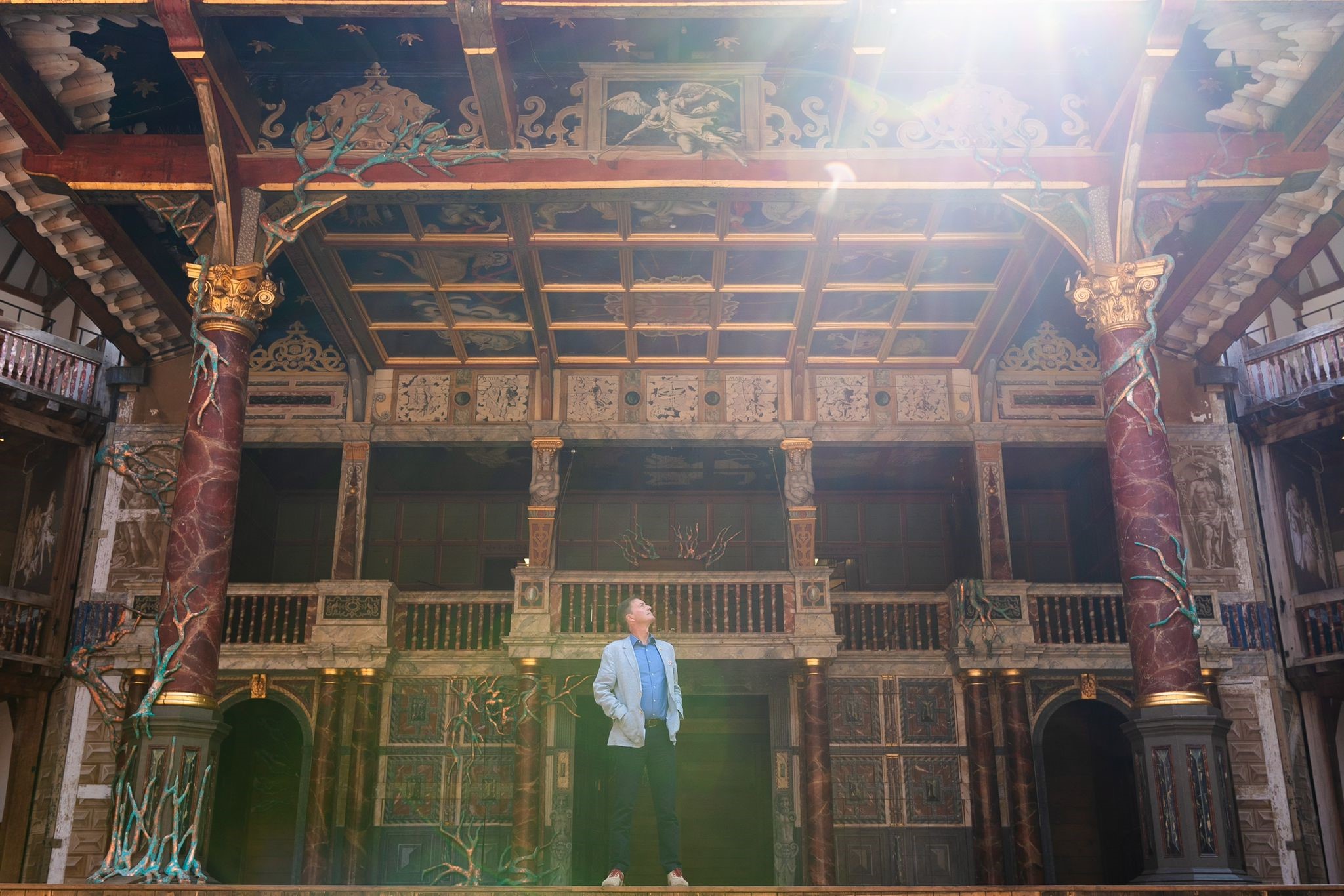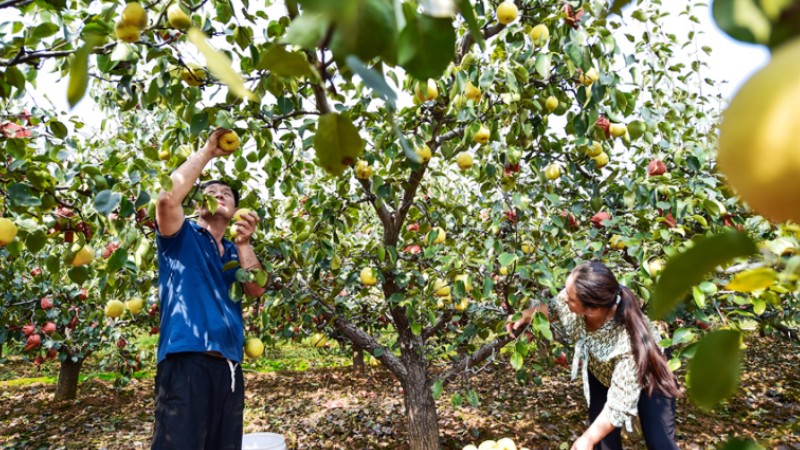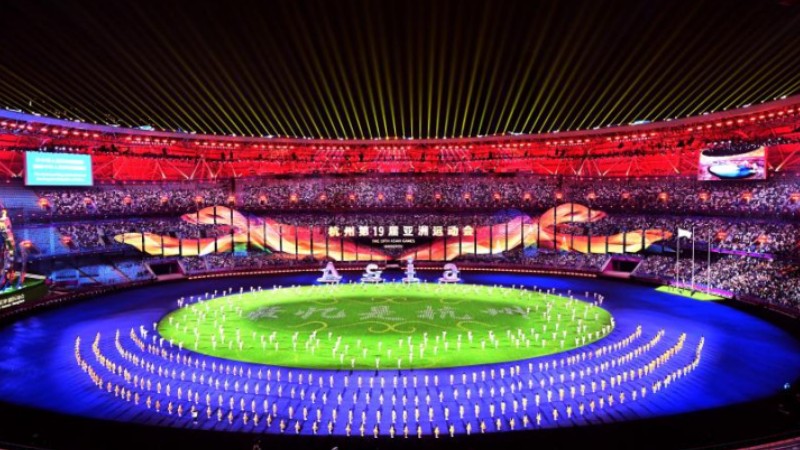Neil Constable: The encounter between Shakespeare and China
Located on the Southside of the River Thames, Shakespeare’s Globe is an adored tourist attraction for Shakespeare enthusiasts and theatre lovers. The Globe has embarked on numerous trips to China, bringing various famous Shakespeare plays to Chinese theatre stages, which have all been warmly welcomed by local audiences. Chinese theatre companies have played on the Globe’s stage as well, presenting Shakespearean classics from the lens of Chinese culture.
In the candlelit Sam Wanamaker Playhouse, People’s Daily Online interviewed Neil Constable, the Chief Executive of the Globe. Neil has worked in theatre extensively for 40 years after graduating from the Guildhall School of Music and Drama. In the last 14 years, his name has been closely associated with Globe’s every iconic event and exchange with China. While Neil is stepping down at the end of 2023, he is committed to using his experience, contacts, and relationships that he has built internationally over the years to bring more cultural exchanges between China and the UK.
A history between the Globe and China

Neil Constable (Photo/Lewis McCarthy)
People’s Daily Online: Could you share with us the story behind your Chinese name, as well as your personal exchanges with China?
Neil Constable: Ni hao! My name is Nie Er and that was specially chosen by my colleagues in China for me because they felt it was important for people to see me as a cultural ambassador, in the way that Nie Er I believe was the name of a famous Chinese composer. The opportunity afforded with me as Chief Executive of Shakespeare's Globe has been a global ambassador for Shakespeare and the cultural landscape in the UK. I visited China for about every year for the last ten years. This has given me a real opportunity to meet people, understand the fantastic venues and new buildings, as well as seeing how we can support the development of performance, arts, and culture in the country.
People’s Daily Online: Many productions of the Globe have toured in China, such as Hamlet and A Midsummer Night’s Dream in 2014, and The Merchant of Venice in 2016. Could you share with us some memorable moments during touring? How were the productions received by Chinese audiences?
Neil Constable: Shakespeare's Globe was the launch for the UK-China Year of Cultural Exchange in 2015. From that, and having welcomed the Chinese National Theatre in 2012, we took the opportunity to bring a number of productions to China. I was very proud that rather than just playing at Beijing and Shanghai, the Globe got the opportunity to play at emerging first tier and second tier cities like Wuhan, Tianjin, and Guangzhou. It is always wonderful to see how Chinese audiences respond to the plays of Shakespeare. For me, Merchant of Venice was a prime example. We recognise that the trial scene is often taught in Chinese schools, but students had not had the opportunity of seeing the play in its full entirety, and they had quite a different view of the character of Shylock. When they saw the whole play, their views were changed, and they wanted to afford him some empathy and some support for his situation.
People’s Daily Online: The Globe cares deeply about young people’s education. Could you share with us some collaborations in education between the Globe and China?
Neil Constable: Alongside a place with two theatres the Globe is also a renowned education provider. 1.64 million children are studying Shakespeare around the world in their own language; we have over 120,000 young students come to the Globe to experience workshops with our education practitioners. With the global pandemic, cultural exchange moved to online, and Shakespeare's Globe was very proud to be working with some education providers in China to be able to offer online workshops.
One of the greatest projects we did was working with Shenyang Normal University up in North China to put on a Peking type opera version of Othello, using both the English play and the Mandarin version. It was great to see the young performers, who were learning to be Chinese opera performers of the future, get a handle on Shakespeare in the type of environment that Shakespeare might have been performing his plays. We were also very proud that they came to London, performed their Shakespeare on our stage and met students from all the English drama schools. I think this really explains and demonstrates physically how cultural exchange can happen.
Shakespeare for all

Neil Constable (Photo/Lewis McCarthy)
People’s Daily Online: In 2012, the Globe invited 37 countries to put on performances of Shakespeare’s plays in their own language. This gave the National Theatre of China an opportunity to debut at the Globe. What was the inspiration behind this multicultural project?
Neil Constable: In 2012, as part of the Cultural Olympiad and celebration of World Shakespeare Festival, the Globe welcomed major international performing arts companies to perform on our Globe stage. The Chinese National Theatre brought a production of Richard III, directed by Wang Xiaoying. It was a production directed in the style of Chinese opera, which meant that it had huge colour, vivacity, and excitement, as well as beautiful costumes. So that production really was a calling card for China and each individual country showing how Shakespeare has influenced their own performing arts. We welcomed an Armenian King John, a Mexican Spanish, and a Catalan Spanish for Henry IV part I and part II; I think this opportunity to share that work is very special.
People’s Daily Online: Every year the Globe celebrates Shakespeare’s birthday on April 23. In your opinion, what gives Shakespeare’s works this timeless appeal?
Neil Constable: Shakespeare’s plays have been translated all around the world into over 120 different languages. Shakespeare has a universal appeal and is one of the most representative cultural icons of the UK. As Hamlet says, with the players holding up a mirror to nature, it is a real opportunity to use the lens of Shakespeare to understand and appreciate the world today. It is why his plays feel so fresh because he created so much new language 400 years ago.
He writes about all types of people, and everyone can find a way into his plays and understand both why he was writing about history, but also how his plays speak contemporarily to us today. I think there is also an opportunity for young people to recognise themselves in the plays. The young lovers in A Midsummer Night's Dream, Romeo and Juliet were both written for teenagers of Shakespeare’s time. People say, I did not realise Shakespeare was like rap. His poetry sings to modern day audience, especially young people, who see it in a similar way to people writing their own music and songs today.
People’s Daily Online: Many people in China consider Tang Xianzu, who lived during the similar period of Shakespeare, the “Shakespeare of the East.” A Peony Pavilion was also built at Stratford-upon-Avon. How does their connection bring cultural exchanges between China and the UK?
Neil Constable: In 2016, to commemorate the 400th anniversary of the deaths of Tang Xianzu and Shakespeare, we had a number of opportunities of learning more about Tang Xianzu and performances of the Peony Pavilion here in the UK. I have also seen performances over in China of Tang Xianzu’s work and it is wonderful in Fuzhou, Tang Xianzu's home, that they have created a reconstruction of Stratford-upon-Avon with Shakespeare's own home. I think all of this recognises the cultural exchange brought by these two wonderful writers, who wrote in quite different ways, but both took on huge themes and huge stories, having found ways of telling them to the audiences of those times.
Continuous exchanges between China and the UK

Neil Constable: (Photo/Lewis McCarthy)
People’s Daily Online: There has been an increase in the number of international tourists in London. What are some activities that visitors could enjoy at the Globe? Does the Globe have any plans to go on an international tour soon?
Neil Constable: Last year the Shakespeare's Globe celebrated its 25th anniversary, and before the global pandemic, we were welcoming a million visitors a year. Around 300,000 were international tourists and tens and thousands of visitors from Southeast Asia and China. We had turned some of our guides and information into Mandarin and Cantonese to be able to provide a warm welcome.
International touring is the lifeblood of the UK performing arts industry. Now as we start to welcome Chinese visitors back to London, we hope that the partnerships and activities we were about to deliver will be able to commence again. I welcomed a delegation from China recently, from a couple of the major tourism associations, and we are starting to talk to the venue owners and producers in China to see whether we can start touring again. But it will still be some time before any theatre companies around the world will be touring in the same way. One can also see the growth of digital and the opportunity for people at home to feel that they are in the theatre sitting alongside audiences. We are in partnership with Tianjin TV and The Merchant of Venice that we performed in China has been streamed by them and on the Aiqiyi platform where all films can be found on the education portal of that streaming service. I am sure technology will develop more and more in the future.
People’s Daily Online: Following 14 successful years with the Globe, you are stepping down at the end of 2023. What cooperation between the Globe and China do you hope to see going forward?
Neil Constable: As I come to the end of my 14 years at the Globe, I am starting to contact my friends all around the world, especially some in China, where I realised the work that we were developing could also help them with the relationships with the UK. I will be making it very clear for my successor to continue to recognise the importance of the relationships with China we have developed over the last ten years. I have always had a great dream that more Globe theatres will be built and can be mirrored in other countries in their own vernacular. For example, having a Chinese opera house and Shakespeare's Globe hybrid in China. There is a real opportunity of building these types of archetype theatres and exchanging work in a similar theatre around the world.
Photos
Related Stories
Copyright © 2023 People's Daily Online. All Rights Reserved.









